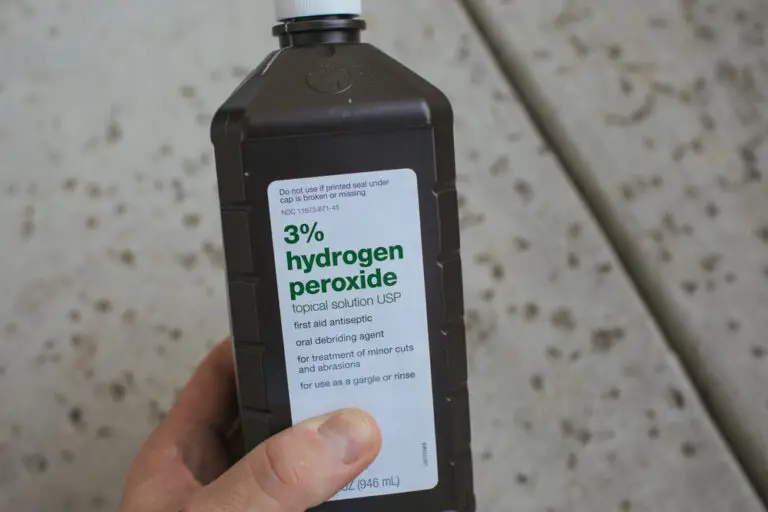It can be alarming when your teeth become extremely sensitive seemingly overnight. While sudden tooth sensitivity is not uncommon, it can indicate a variety of underlying issues that require different solutions. Determining the exact cause of heightened sensitivity is key to finding the right treatment approach.
Tooth sensitivity occurs when the layers that normally protect the tooth’s inner nerves become compromised. This exposes sensitive nerve endings and dentinal tubules to outside stimuli that cause discomfort and pain. Understanding the potential reasons your teeth are suddenly sensitive can help you work with your dentist to diagnose the problem and find effective relief.
What Triggers Tooth Sensitivity?

There are a number of possible culprits behind sudden tooth sensitivity:
1. Temperature Extremes
Hot, cold, or lukewarm foods and beverages can provoke nerve pain in sensitive teeth. The most common triggers are cold foods and drinks, as the fluid in the dentinal tubules moves slower when cold. This prolongs the stimulus to the nerve. However, hot temperatures can also instigate sensitivity depending on the condition of the tooth’s inner nerves. Repeated exposure to temperature extremes can exacerbate nerve irritation over time.
2. Sugar and Acidic Foods
Beverages, candies, fruits, and other foods containing high sugar or high acid content often aggravate sensitivity. Acids in these foods break down and erode the enamel and dentin layers, allowing heat, cold, and pressure to reach the tooth’s inner nerves more readily. Sugary foods also provide fuel for the bacteria that cause cavities leading to sensitivity. Minimizing consumption of sugary and acidic foods reduces sensitivity irritation.
3. Tooth Grinding and Clenching
Grinding, clenching, or other repetitive forces placed on teeth can cause tiny fractures in the enamel. This exposes sensitive dentin underneath to outside stimuli. Excessive biting pressure also compresses nerves, triggering sensitivity pain. Using a custom nightguard can prevent damage from habitual grinding and clenching.
4. Gum Recession
When gums recede due to periodontal disease or vigorous brushing, the root surfaces of the teeth become uncovered. The cementum layer on roots contains less protective enamel and is much more prone to sensitivity. Gum recession should be addressed promptly to prevent extensive root exposure leading to escalating sensitivity problems.
5. Advanced Tooth Decay or Dental Injuries
Untreated tooth decay destroys enamel and dentin, providing a pathway for hot/cold irritants to reach the tooth’s inner nerves. Chipped, cracked, or fractured teeth can also expose nerves and make teeth extremely sensitive. Prompt treatment of cavities, cracks, chips, and dental injuries can help resolve resulting sensitivity.
6. Dental Procedures and Treatment
It’s very common for teeth to be sensitive in the days or weeks following whitening treatments, root canals, crown placement, or other invasive dental work. The sensitivity is usually temporary as the teeth and nerves heal after procedures. However, if it persists longer than expected, consult your dentist.
7. Medications
Certain prescription medications like those for high blood pressure, seizures, or cancer can increase likelihood of dental sensitivity as a side effect. This typically resolves once the medication is stopped. Check with your doctor if medications may be contributing to oral sensitivity.
As you can see, there are a wide variety of potential reasons behind sudden tooth sensitivity. The source of your sensitivity discomfort plays a key role in choosing the right solutions.
When to See the Dentist About Sudden Sensitivity
Brief, minor sensitivity from a known cause like eating ice cream may not require professional attention. However, it’s advisable to promptly consult your dentist if sensitivity is:
- Unexplained or persistent longer than 1-2 weeks
- Interfering with eating, drinking, or oral hygiene habits
- Accompanied by other worrisome symptoms like oral pain or swelling
- Occurring without an identifiable trigger
- Getting progressively worse over time
Significant or increasing sensitivity can be a red flag for issues like damaged nerves, infections, fractures, or other problems needing intervention. Seeing a dentist allows proper diagnosis so that effective treatments can be implemented before the condition worsens.
How Dentists Diagnose Sensitivity

During an exam for sensitive teeth, your dentist will likely:
- Ask questions about your symptoms, including when sensitivity started, what provokes it, and if anything makes it better
- Look closely at your teeth, gums, and oral tissues for signs of decay, cracks, wear, gum recession, or other irregularities
- Test individual teeth using hot and cold stimuli to pinpoint which ones are sensitive
- Tap lightly on your teeth with a dental instrument to check if a pain response occurs from your nerves
- Take x-rays to check for hidden problems like infections, cysts, or micro-fractures
These diagnostic steps allow your dentist to identify what’s causing the sensitivity and recommend appropriate therapies.
Common Treatment Options for Sensitive Teeth
There are a variety of ways dentists can provide relief from tooth sensitivity:
Target Any Underlying Dental Problems
Fixing issues like tooth decay, damaged dental work, fractures, recession, and abnormal wear that are causing sensitivity is the first step. Treatments depend on the condition and location of each affected tooth.
Desensitizing Toothpastes
Special toothpastes contain active ingredients like stannous fluoride, arginine, or potassium nitrate that work by calming nerve activity. Brushing gently with desensitizing pastes can offer symptom relief for many cases of sensitivity.
Professional Strength Treatments
In-office treatments like prescription bonding agents, sealants, fluoride varnish, and desensitizing gels applied directly to sensitive spots help control sensitivity. These penetrate dentinal tubules to block pain signals.
Dental Restorations
For localized sensitivity from cracks, decay, or wear, bonded composite fillings, inlays, onlays, or ceramic crowns can shield exposed dentin. Veneers may also be recommended.
Treatments for Nerve Pain
If the cause is dental neuropathy, medications or procedures like root canals can settle irritated nerves.
Surgical Gum Grafting
Grafting surgery to regrow areas of receded gums can help cover exposed sensitive root surfaces. This protects them from temperature changes and touch stimulation.
There are many options for alleviating tooth sensitivity. Your dentist will recommend targeted treatments based on their assessment of what’s causing your specific symptoms. Relief may require trying different remedies to find what works best.
Tips to Help Prevent Tooth Sensitivity

You can help minimize and avoid tooth sensitivity by:
- Brushing teeth gently twice a day with a soft or extra-soft bristle brush. Avoid abrasive scrubbing.
- Flossing once daily, also gently.
- Rinsing with water after eating acidic foods.
- Drinking acidic drinks quickly through a straw. Avoid swishing them around teeth.
- Using enamel-strengthening fluoride toothpaste.
- Having regular dental cleanings every 6 months.
- Not brushing right after consuming acidic foods/drinks. Wait 30 minutes.
- Using a nightguard if you grind your teeth.
- Getting dental injuries, chips, cracks, and cavities treated promptly.
Catching and remedying issues early provides the best chance to avoid minor sensitivity problems progressing into major, painful ones over time.
Frequently Asked Questions About Sensitive Teeth
Q: Why do my teeth hurt from cold but not hot?
A: Cold is more likely to provoke sensitivity pain because the fluid in the dentinal tubules moves slower when cold. This prolongs the stimulus affecting the nerve. Hot flows faster, so the stimulus ends quicker.
Q: Will sensitive teeth get worse over time if not treated?
A: Untreated sensitivity that has a source like decay, cracks, or recession will likely worsen over time as those problems escalate without intervention. It’s best to have significant, persistent sensitivity evaluated.
Q: Can I still brush if my teeth are very sensitive?
A: Yes, it’s important to continue brushing twice daily even if you have sensitivity. Use extra care and a soft brush. Avoid scrubbing affected areas vigorously. Use gentle motions. Desensitizing toothpaste can make brushing more comfortable.
Q: What toothpaste ingredients help sensitive teeth?
A: Ingredients like stannous fluoride, potassium nitrate, arginine, and strontium chloride have proven desensitizing and nerve-calming abilities. Using a specialty toothpaste made for sensitivity can provide symptom relief.
Q: Will one sensitive tooth always need a root canal eventually?
A: Not necessarily. Tooth sensitivity has many potential causes besides severe nerve inflammation that warrants a root canal. Your dentist will be able to determine if a root canal is needed based on examination findings.
Q: Can teeth become less sensitive on their own?
A: Sometimes mild sensitivity arising from a temporary cause like dental work will resolve as the teeth settle. However, more significant, persistent sensitivity related to issues like fractures, decay, or recession usually requires specific treatment.
Conclusion
Sudden tooth sensitivity can result from a variety of underlying problems, ranging from simple surface wear to serious infections and nerve damage. Proper diagnosis and targeted treatment are key to resolving sensitivity issues before they escalate. If you experience persistent sensitivity for unknown reasons, promptly consult a dentist for an evaluation. Implementing good daily oral care habits can help prevent many common triggers. Addressing sensitivity and its causes as soon as possible provides the best chance for effective, lasting relief.






